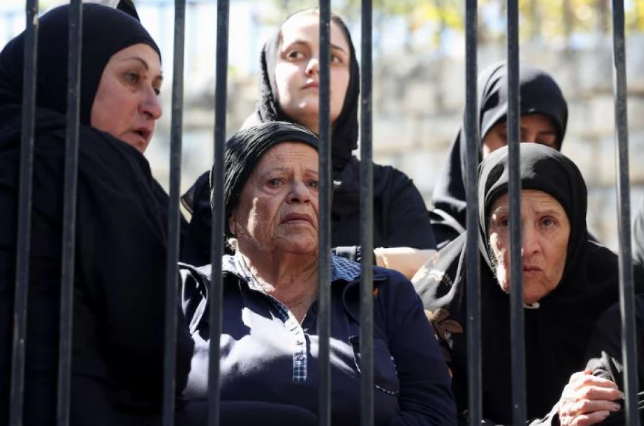Israel has firmly rejected global calls for a ceasefire with Hezbollah, continuing its military operations that have resulted in significant casualties in Lebanon. The latest airstrike by Israeli forces targeted the outskirts of Beirut, claiming the lives of two individuals and injuring 15 others, including a woman in critical condition.
This brings the death toll from strikes on Thursday and overnight to 28. Among those killed was Mohammad Surur, the head of one of Hezbollah’s air force units, marking a continued effort by Israel to eliminate senior Hezbollah commanders amid escalating tensions.
Smoke was reported rising from the area of the strike, which is known to house several Hezbollah facilities along with civilian residences. Hezbollah’s Al-Manar TV broadcast images showcasing the damage inflicted on a building during the attack.
On the Israeli side, military exercises simulating a potential ground invasion were conducted, indicating preparations for a possible escalation following extensive airstrikes. Israeli Prime Minister Benjamin Netanyahu, upon arriving in the U.S. for the U.N. General Assembly, reiterated Israel’s commitment to intensify its military actions against Hezbollah, stating, “We will not stop until we achieve all our goals, first and foremost returning the residents of the north safely to their homes.”
The refusal to consider a ceasefire has dashed hopes for a swift resolution to the conflict, particularly after Lebanese Prime Minister Najib Mikati expressed optimism for a halt in hostilities, despite his government’s ties to Hezbollah. The ongoing bombardment has prompted hundreds of thousands of people to flee their homes, marking the heaviest Israeli strikes on Lebanon since the 2006 war.
Amidst the escalating violence, calls for a ceasefire have been made by the U.S., France, and several allies, advocating for a 21-day ceasefire across the Israel-Lebanon border, as well as in Gaza. However, Israel’s stance remains steadfast as it continues its military operations.
U.S. Secretary of State Antony Blinken has emphasized that major world powers are advocating for a ceasefire in the escalating conflict between Israel and Hezbollah. In an interview with MSNBC, he mentioned that he would be meeting with Israeli officials in New York, including Israeli Minister for Strategic Affairs Ron Dermer. Meanwhile, U.S. Defense Secretary Lloyd Austin has expressed concerns about the potential for an all-out war in the Middle East, stating that despite recent escalations, a diplomatic solution remains achievable.
Since Monday, over 600 people have died due to Israel’s airstrikes on Lebanon. In response, Hezbollah has launched hundreds of missiles at Israeli targets, including the commercial hub of Tel Aviv; however, Israel’s aerial defense systems have mitigated the damage. On Wednesday, Israel’s army chief hinted at a possible ground assault on Lebanon, instructing troops stationed near the border to prepare for action.
On Thursday, Israeli fighter jets targeted infrastructure along the Lebanese-Syrian border to prevent the transfer of weapons from Syria to Hezbollah. According to Lebanon’s health ministry, many of the victims from Thursday’s strikes were Syrians residing in the town of Younine in the Bekaa Valley, which hosts around 1.5 million Syrian refugees who fled their country’s civil war.
Hezbollah claimed responsibility for attacks on Kiryat Shmona, an Israeli town, and an Israeli military base, asserting that they used air defense weapons to deter two Israeli warplanes.
In Beirut, thousands of Lebanese citizens have sought refuge in schools, with some seen leaning out of classroom windows and utilizing makeshift bedding. Aid organizations are actively distributing food and clothing and assessing medical needs, particularly for elderly individuals who had to evacuate hastily.
As tensions rise, neighboring countries are increasingly concerned for the safety of their nationals in Lebanon. Turkey has initiated preparations for the potential evacuation of its citizens and foreign nationals from the country, according to a source from the Turkish defense ministry.
Israel has prioritized securing its northern border and facilitating the return of approximately 70,000 residents displaced by ongoing conflicts, which have intensified since Hezbollah initiated cross-border exchanges of fire a year ago in solidarity with Hamas in Gaza.
Since Monday, Israel’s airstrikes have escalated dramatically, resulting in over 550 deaths in Lebanon, marking the deadliest day in the country since the conclusion of its civil war from 1975 to 1990. The recent bombings follow a series of attacks last week involving the detonation of pagers and walkie-talkies across Lebanon, which led to numerous casualties, including injuries to Hezbollah members.


